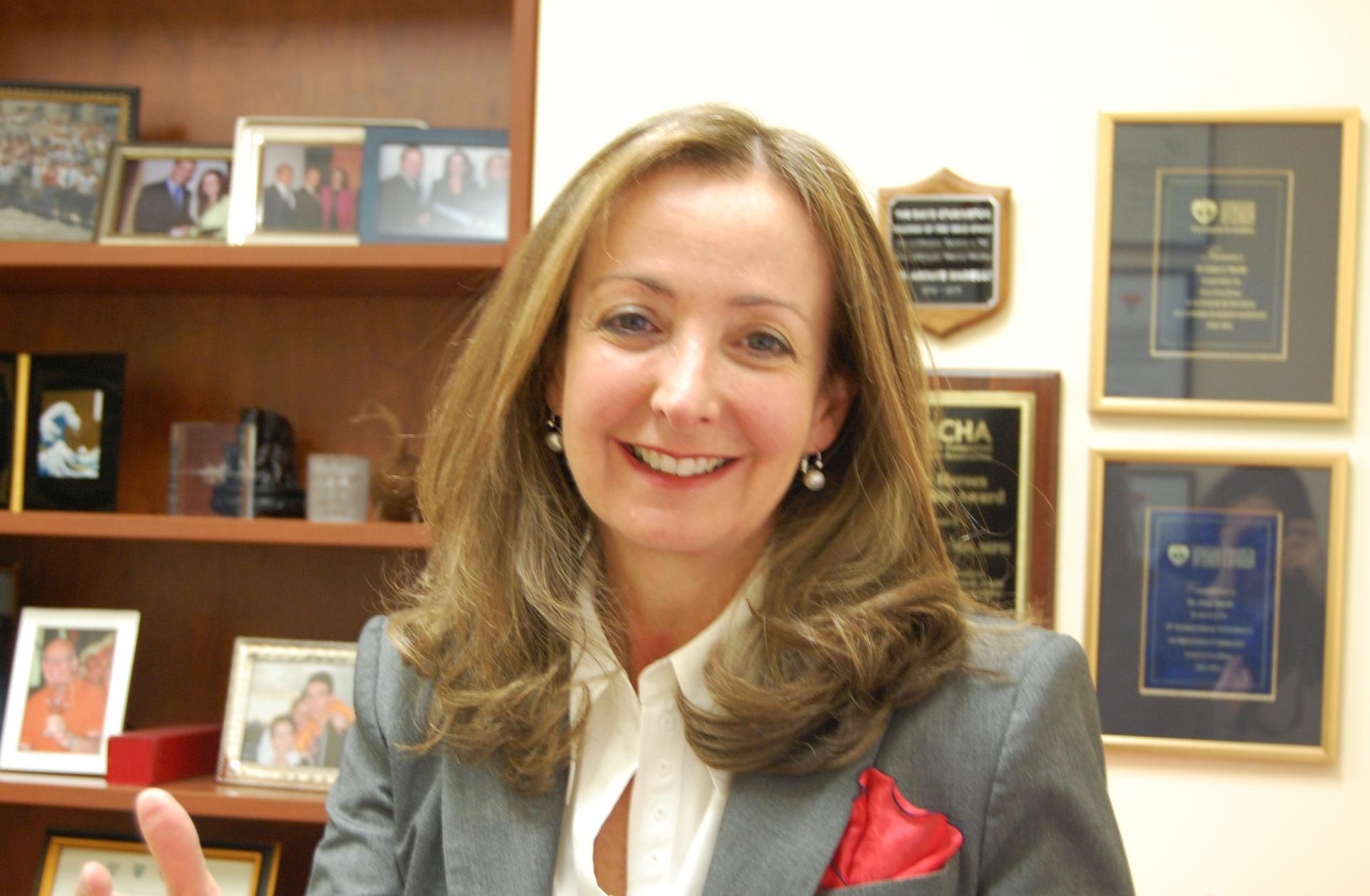The MAUDE Unit at the Glen: an ideal environment to welcome young adults with congenital heart disease

When cardiologist Dr. Ariane Marelli was a medical resident, she met a young patient who changed the course of her career. “He was my age at the time, 23 or 24 years old, and he had been born with a heart defect. He grew up waiting for a heart transplant,” she says. “I met his wife and his two children and was very moved by how much he had already accomplished in his life. He ended up dying while waiting for that transplant. That’s when I decided to specialize in the field of congenital heart disease (CHD).”
LCHD is the world’s leading birth defect. Every year in Canada, 1,100 children are born with some type of heart abnormality. There are an estimated 257,000 Canadians living CHD and two-thirds of them are adults. But when Dr. Marelli, who is professor of Medicine at McGill University, associate director of Research and Academic Affairs for Cardiology at the McGill University Health Centre (MUHC) and founding director of the MUHC’s McGill Adult Unit for Congenital Heart Disease Excellence (MAUDE), started her specialization, children with CHD were just beginning to enter adulthood.
“It’s only since the 70s and 80s that more advanced cardiac surgical procedures were developed. By the 90s, the first generation of kids born with CHD were becoming adults. Now, approximately 95 per cent make it to adulthood and some of them are having babies themselves. These patients need life-long cardiac care.”
Located in the Royal Victoria Hospital, the MAUDE Unit provides care in cardiac surgery, cardiac intervention, valvular heart disease and direct referral for transplantation. Over 15 professionals, including medical specialists in CHD, nursing, technical, research and devoted clerical staff, work with adults who were followed by pediatric cardiologists at the Montreal Children’s Hospital (MCH) until they turned 18.
Maude Abbott, pioneer in CHD
MAUDE stands for McGill Adult Unit for Congenital Heart Disease Excellence, but the name was also chosen to celebrate the memory of Montreal physician Maude Abbott (1869-1940), known as the mother of congenital heart disease. Her Atlas of Congenital Heart Disease, published by the American Heart Association in 1936, was one of the most important contributions to the understanding of cardiac defects at the time.
“We are a superb team not only in the MAUDE unit but at the Children’s where we collaborate closely with the pediatric specialists and their colleagues to make the transition to adult care as smooth as possible for these young patients and their families. Their first visit to the unit, in particular, is very important.”
In 2015, the MAUDE Unit will celebrate its 10th anniversary. Supported by MUHC funds, private donations and peer reviewed research funding, the MAUDE Unit reflects the mission of the MUHC by offering patients complementary expertise across their lifespan.
“It’s been an amazing trajectory and a real success story. When I started in 1997, I saw seven adult patients with CHD. Last year, our McGill program, which includes a service at the Jewish General Hospital, saw close to 3,000 patients. We can only have accomplished that with the support of Pediatrics and Cardiac Surgery.”
For Dr. Marelli, the move to the Glen site*, next April, will bring “huge benefits” to the unit.
“We’ll be spoiled and the patients will be optimally cared for,” she says with a smile. “Being so close to Pediatrics will optimize the patient-centered and family-centered transition process. The MAUDE unit will have a designated space within the cardiovascular pod, and the patients will only have to walk across the hall.”
She hopes the new unit will be as comfortable and welcoming for her patients as the present one.
“These are a very special group of young patients who’ve been living with heart disease their whole lives,” says Dr. Marelli. “Many of them are incredibly resilient and a great source of inspiration for us. Our reward is very powerful.”
The largest CHD research database worldwide
A cornerstone of MAUDE’s success is the provincial CHD database of more than 80,000 patients, from 1983-2005, the largest in the world. “We have become well known for our research in epidemiology, health services and outcomes in CHD,” says MAUDE director Dr. Ariane Marelli. “Our database is shared with researchers across Quebec.”
The Maude Unit was recently featured on the health tv show Une pilule, une petite granule,on Télé-Québec.


